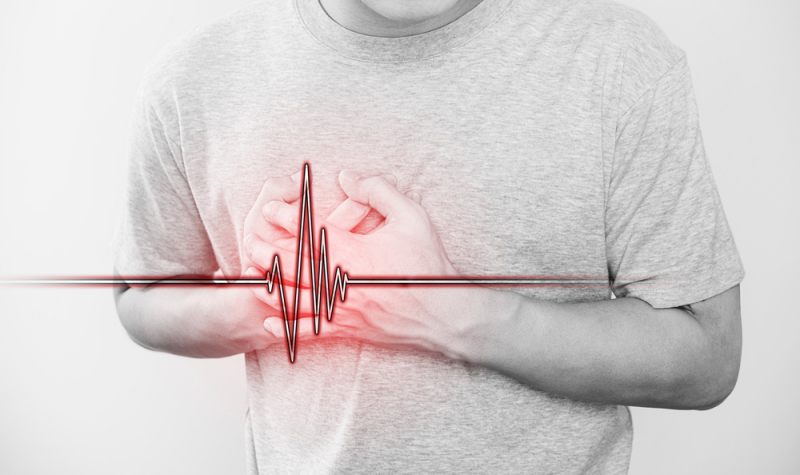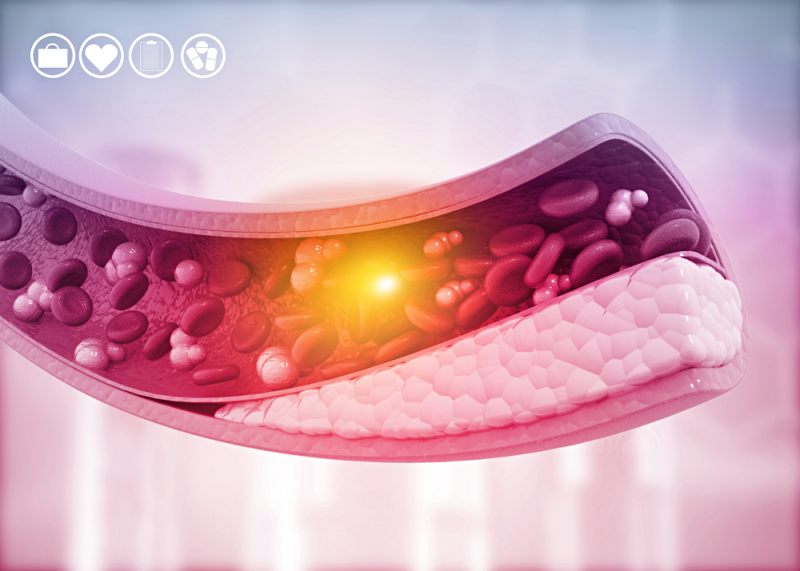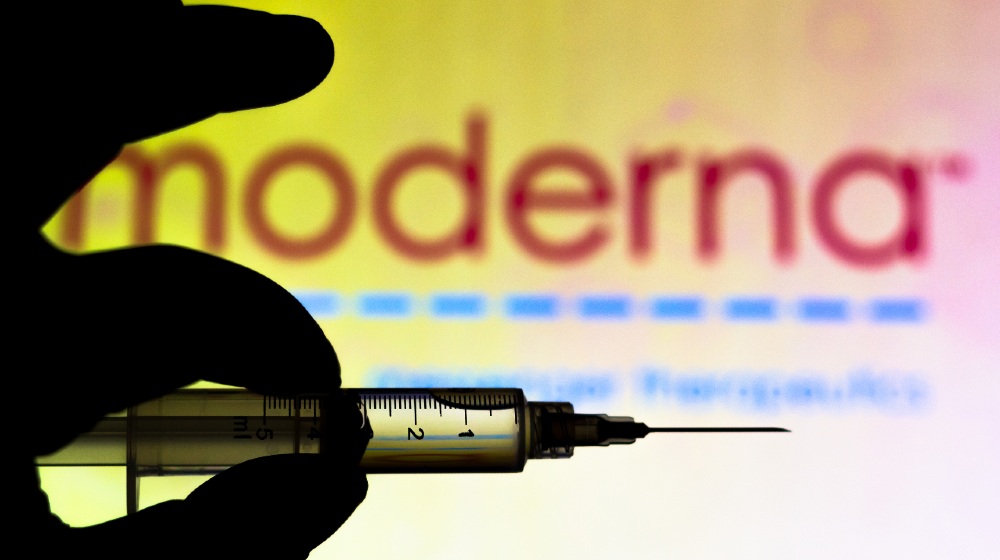Do you know what to do during an angina attack? Is it a heart attack? What's the first thing you should do? Keep reading to find out.
RELATED: Protect Your Heart with These 13 Natural Blood Thinners
Angina Attack | What It Is and What to Do

What Is Angina?

Angina is chest pain, tightness, or discomfort that results from your heart not getting enough oxygen.
It is not a condition but a symptom of other heart conditions like heart disease.
There are three types of angina:
- Stable angina follows a steady pattern for two months. You may resolve it with rest or medicine. However, if you don't address the cause of stable angina, it may turn into unstable angina.
- Unstable angina is unpredictable and may come and go at random times, not triggered by the same causes of stable angina. Unfortunately, it cannot be resolved by taking medicine or rest. As it is more severe than stable angina and could be a precursor for heart attack, call for emergency medical services immediately.
- Variant angina is a rarer type of angina, where instead of a blockage in your arteries, it is a muscle spasming that causes chest pain and tightness. Unlike stable angina, it happens when you're resting and typically occurs between midnight and morning. It may be resolved by taking medicine.
If you experience angina or tightness in your chest, make sure to note down all your observations. Jot down all the patterns you notice.
- Does it happen when you're stressed?
- Do you feel chest pain during or after exercise?
- Is there a specific time when you feel chest pain? Or does it happen at random?
Your cardiologist (heart specialist) may be able to diagnose you with angina based on your symptoms, including:
- fatigue
- weakness
- shortness of breath
- sweating
- tightness in your chest
- nausea, uneasiness in the stomach
What Causes Angina?

Angina takes place when your arteries are not able to deliver oxygen-rich blood to your heart. This may either be because of blockages in your arteries.
Atherosclerosis is a condition when your arteries are blocked by plaque. In some cases, the plaque may rupture and cause a blood clot to form in your arteries. This blood clot might then partially and completely block your arteries, leading to another potential cause of angina.
Another possible cause of angina is a coronary microvascular disease, where impaired arteries are unable to expand normally and carry oxygen-rich blood to the heart.
Who Are at Risk?

Some poor lifestyle and dietary choices may put you at higher risk of angina or heart disease.
Risk factors of angina and heart disease may include:
- age (men are at higher risk beginning age 45, both men and women are at higher risk before age 55)
- poor/unhealthy diet
- smoking
- metabolic syndrome
- family history
- high cholesterol
Some conditions that increase your need for oxygen might also raise your risk of angina, such as:
- metabolic syndrome
- anemia
- damaged blood vessels
- cardiomyopathy
- heart damage because of an injury
- heart failure
- high blood pressure (hypertension)
- low blood pressure
- heart valve disease
- inflammation
- diabetes or insulin resistance
As you age, it becomes more imperative to care for your health. With age comes age-related conditions. But aging does not mean you are at risk of disease.
Improving your lifestyle and eating well could lower your risk and help improve your overall health.
The best way to prevent angina and heart disease is to take care of your heart. An active lifestyle and a heart-healthy diet may help prevent lower your risk of heart conditions.
RELATED: Dash Diet | What Does Dash Diet Mean?
What Does Angina Feel Like?

When you experience an angina attack, you may feel:
- pressure or chest pain
- intense sweating
- difficulty breathing
- nausea
- fatigue
- pain that comes and goes
Angina may also be mistaken for indigestion or pain along the jaw, neck, shoulders, and down your arm. But it is important to note that these are also symptoms of angina.
Keep in mind that not all those suffering from an angina attack feel pain. Sometimes, they may feel angina equivalent symptoms like fatigue or shortness of breath.
Angina symptoms are hard to catch and are much easier to mistake for other conditions.
Other health conditions mistaken for angina include:
- blockage along a lung artery (pulmonary embolism)
- a tear in a major artery (aortic dissection)
- lung infection
- thinning of an aortic valve (aortic stenosis)
- heart muscle disease (hypertrophic cardiomyopathy)
- heart tissue inflammation (pericarditis)
- panic attack
What Is the Treatment for Angina?

If it's your first time experiencing angina, rest and wait for 10-20 minutes for the pain to subside. Stable angina symptoms typically last for 20 minutes, especially after stressful situations or a workout. If the chest pain and other symptoms persist, call for emergency services immediately.
If you have been diagnosed by a cardiologist and are experiencing stable angina symptoms, take your doctor-prescribed angina treatment (such as nitrate medicines). Take another dose if the pain persists after five minutes or if it returns.
If you experience severe chest pain with no visible cause (like a workout or being faced with a stressful situation), call immediately emergency services right away.
When left untreated, angina could develop into a heart attack. Even if the pain has subsided, it's better to consult with a doctor. Chest pain, if not indigestion, may point to other serious conditions.
Angina treatment may depend on your condition. In some cases, leading a healthier life and taking medicine might help control your angina symptoms.
Once you are diagnosed with angina, your cardiologist might prescribe your medications such as:
- anticoagulant medicine
- antiplatelet medicine
- beta-blockers
- calcium channel blockers
- nitrates
- statins
If your angina is proving difficult to control, you may need to undergo procedures like:
- coronary artery bypass grafting (CABG)
- percutaneous coronary intervention (PCI)
Angina treatment goes beyond just taking heart medicine. Heart conditions may be avoided with a lifestyle change and healthier food choices. Making proactive choices and tackling symptoms early on could prove to be a life-saving decision!
How Long Can You Live With Angina?

You can live a long and healthy life if you take the necessary precautions and change your lifestyle to cater to your medical condition.
Your doctor may prescribe regular medication. You might also receive instructions on a more restrictive diet. Maintain a healthy weight and get as much exercise as you can.
So how long can you live with angina? It depends on how well you adhere to your doctor's instructions.
Check out to discover exactly what to do when you're experiencing an angina attack:
By practicing heart-healthy habits and choices, you may prevent both heart disease and angina.
Be sure to go to an annual doctor's check-up once you hit your 40s.
If you're a chain smoker, take it as a signal to stop. Watch your drinking habit. Downing a glass every night for your heart may not be a good enough reason to pick up the habit.
Angina symptoms are difficult to differentiate from indigestion or pain in your shoulder and neck region. Sometimes, it's hard to tell if you're already suffering from a heart attack. Err on the side of caution and call emergency medical services immediately.
You don't need to experience angina symptoms to book an appointment. Taking a more proactive role in your health could be your first step in preventing angina in the first place.
You Might Also Like:
- Best Foods to Lower High Blood Pressure
- 17 Foods to Lower High Blood Pressure Without Medication
- How to Burn Fat While Sleeping | 9 Stress-Free Ways to Burn Fat While Sleeping
Please stay connected with us on Facebook, Twitter, Instagram, and Pinterest, and make sure to join our community of healthy living and minded people here.
Trending
Dating in Your 50s: Do’s and Don’ts
How To Develop A Healthy Habit In 21 Days
Get Updates
SIGN UP FOR OUR NEWSLETTER TODAY

13 Basic Flexibility Exercises For Older Adults

How To Develop A Healthy Habit In 21 Days

Coronavirus Vaccine News: Moderna Shows 94.5% Success
Related

13 Basic Flexibility Exercises For Older Adults

